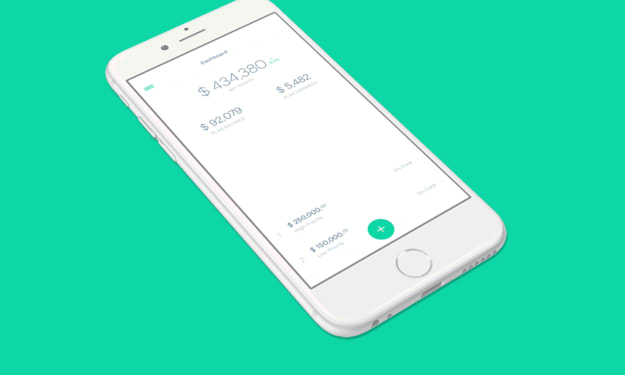How to Invest in Commodities
Yes, it's possible to learn how to invest in commodities without being a Wall Street professional. Here's how you can—and what you should know before you do.

There are a myriad of different ways to invest your money. Most traditional investments involve things like bank account interest, savings bonds, stocks, mutual funds, or even real estate investments.
Commodities, also known as the trading of raw materials like precious metals, corn and wood, has long been known to be profitable ways to invest—as long as you know what you're doing.
That being said, it's a lot harder to invest in commodities than it is to invest in the stock market. To a point, it almost seems like commodity investments are considered to be an "elite" form of trading. After all, you don't really hear about many commodity trading apps, do you?
Want to learn how to break into this kind of trading? Believe it or not, it's a lot easier than you'd expect it to be. Here's how to get into it, without losing your mind.
Before we start talking about how to invest in commodities, let's explain the basics of what you should expect.

Regardless of what you want to invest in, you have to understand that there are certain truths about investing that you may never really squirm away from. The following things, regardless of what or how you invest, will always stand true:
- You can lose everything pretty easily and incurring losses is almost a given. It's something you need to think about, regardless of how well you think you're capable of doing. Markets go down and go up. It's possible to see the commodities you want to invest in belly-up in terms of demand. Don't invest money you can't afford to lose.
- Just like with any other investment, you need to do your research first. Commodities are very fickle, and carry a decent amount of risk. You better have a good idea of what's going on in the commodity world before you plunk down money.
- Due diligence is on you. Don't plunk down cash willy-nilly.
- You need to know what commodities are. Commodities are raw materials, such as gold bullion, wood, corn, and oil. They're the building blocks of our society, and often are what drive our society's manufacturing circuits.
You also need to know some caveats about commodities before you start investing.
Now, in terms of commodities, this can get a bit sticky. The commodity market doesn't always trade the way the regular market does. Here are some things newbies should know:
- If you choose to trade in commodities without using funds or going to a specialized trading firm, you're going to be in over your head. Commodities are not like normal stocks. They take phenomenal amounts of research in order to actually get a lot of cash back, and in most cases, the best commodity traders are ones who tend to work in the industries.
- It is possible to invest in futures solo, but it's far too risky to do so. As a result, we're not going to cover it too deeply.
- We cannot stress how risky commodity trading can be. Even when you're learning how to trade commodities, it'll be clear that it's not for the faint of heart.
- Because markets are so volatile, we suggest adding commodities to a low-risk portfolio. You shouldn't ever put all your (nest) eggs into one basket.
Before you understand how to invest in commodities, you need to learn the four most common routes.

There are a lot of ways you can trade commodities, and the routes you choose will often be based on what commodity you choose. Here's the scoop on the main four methods:
- Commodity Futures. This allows you to buy a contract that allows you future possession of a commodity before it's mined. It's often the riskiest method.
- Commodity ETFs. These are exchange trade funds that own the commodity that you want to invest in, and use multiple sources to make the value more stable.
- Investing in Commodity Companies. Some choose to invest in commodities by investing in the companies that make them or mine them.
- Direct Ownership. A good example of this would be buying a gold bar and keeping it in a bank.
When discussing how to invest in commodities, it's crucial to pick the route that you feel most comfortable with. Now, let's talk a little bit about each route out there...
Here's what you need to do to invest in commodity futures...
Once again, this is really not a good idea unless you have a lot of time and money on your hands. To begin, you will need to talk to a commodities broker to do so, first. Brokers will require you to open up an account with them, which can cost upwards of $10,000 depending on the firm.
The cheapest brokerages will be priced around $2,500 minimum. Once you're in, you can invest in solo futures, with a margin as low as 3 percent of the actual price of the cost.
This sounds great, until you hear that commodities are so volatile, they legally have enforceable maximum daily changes. Futures trading is really shaky ground.
What you choose to do then, is up to you. However, most brokers will tell you that people who don't know how to invest in commodities professionally will end up losing huge amounts of cash.
That being said, you don't necessarily have to be a trading genius to work well with commodities. Some routes are fairly "newbie friendly" and can make a lovely addition to a budding stock portfolio.
The easiest way to learn how to invest in commodities is to pick up an ETF investment platform like Stash, and plunk down money on ETFs that trade specific commodities. Their "All that Glitters" ETF is a fund that is specifically dedicated to gold and precious metals commodities and can have share slices bought up for as little as $5.
If you're not a Stash fan, funds managed by Vanguard are a similarly good option. Even trading index funds or mutual forms tend to work out well, simply because they tend to be tied to commodities in one way or another.
Some ETFs are really terrible when it comes to returns. Others are pretty good. It's up to you to learn which is right for you.
Most people who don't really know how to invest in commodities will tend to want to try ETFs because they're a safe bet. If you don't want to go totally nuts with futures but want a little more control than an ETF or mutual fund featuring commodities offers, you can trade company stocks that deal with commodities in one way or another.
For example, downloading Robinhood and buying up cannabis company stocks would be a good way to invest in the commodity known as cannabis. On the other hand, getting a company that works with oil will allow you to invest in oil indirectly.
Either way, it's a good idea to try apps to help you manage your investments better. They tend to have more reliable stocks, and are often safer than trying third-party platforms. The funds they offer, particularly when it comes to index funds, tend to be the most reliable ways to watch your money grow.
One of the best money hacks you can learn is to diversify your portfolios as a way to reduce fluctuation. Both company stocks and ETFs avoid the pitfalls of high fluctuations, price change caps, and more—all while still giving you a piece of the pie.
Of course, you also can just buy the commodity outright.

If you're not really comfortable learning how to invest in commodities via the stock market, there is some good news. The fact is that some commodities, such as gold bullion, can be bought outright on the market—albeit, with a very slight markup.
The way this form of investment works is actually rather simple. You buy a batch of the commodity (ideally, one that doesn't spoil, such as gold). Then, you store the commodity inside your home or inside your bank safe.
Physical commodities have the benefit of being able to be taken anywhere you want to bring them. Once the price rises enough, you sell the commodity off for a profit. It's one of the oldest investment methods out there.
A good way to reduce risk is to follow the trend cycles before you invest.
Just like with fashion, trends in commodities tend to go in cycles. The best way to ensure that you work with your best interest in minds is to cut your losses when the stock stops delivering returns as expected for annual rates.
Once a commodity stock stops delivering above its 10-month moving average, sell it off and buy bonds. This maximizes your return, and allows you to work with cycles, rather than against them.
This is similar to a tactic called Faber's Sector Rotation Trading Strategy.
Another thing to remember when you're learning to trade commodities is to be careful where you get most of your advice from.

Commodity trading seems to bring out so many sneaky crooks, primarily because it's seen as an elitist kind of trading. This means that you will run into a million different groups saying that they can teach you how to invest in commodities and get insane rewards from it.
Truth is, most of them make their money from fooling newbies, not from trading. A good rule of thumb is to avoid any program that uses any of these phrases as part of its marketing:
- "Make unlimited amounts of cash!" No, you can have limits on how much you can earn, technically. If they are appealing to your greed, that's a bad sign.
- "A fool-proof system." Nope. There's no "system" to investing, and nothing is fool-proof in investments of any kind.
Lastly, use your common sense.
You can read all you want about how to invest in commodities, but all that information will not mean anything if you have no common sense. If it seems sketchy, don't invest in it—and when in doubt, ask a professional who's licensed in financial services for advice.
About the Creator
Iggy Paulsen
Iggy Paulsen is a fan of anything and everything wholesome. He loves his two dogs, hiking in the woods, traveling to Aruba, building DIY projects that better humanity, and listening to motivational speakers. He hopes to eventually become a motivational speaker himself.






Comments
There are no comments for this story
Be the first to respond and start the conversation.